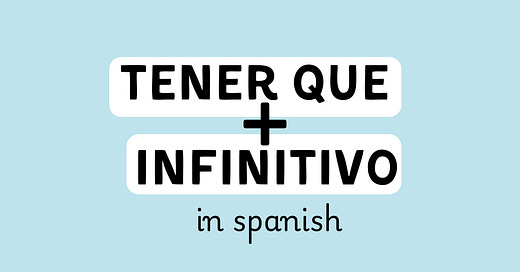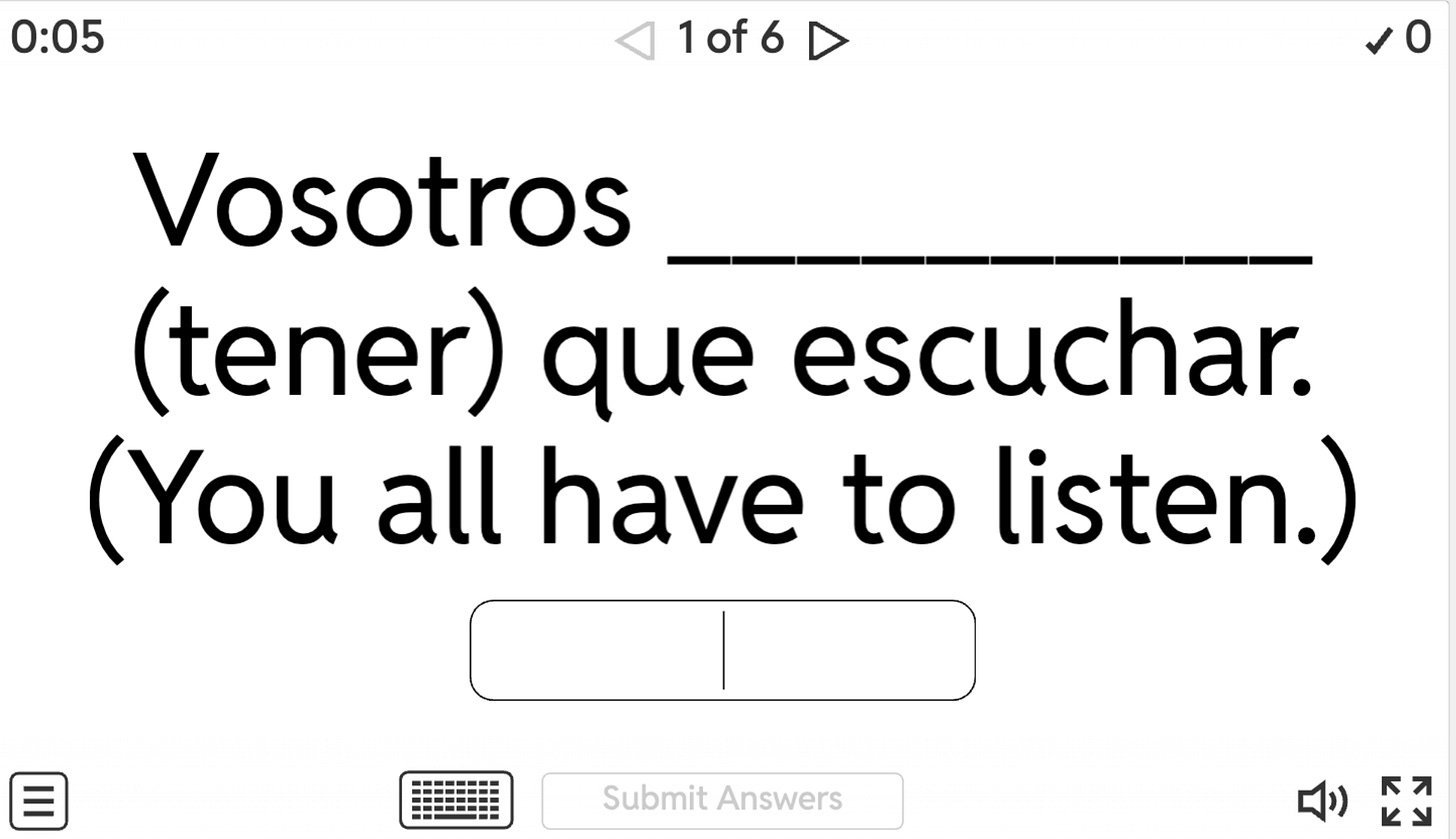Tener que + infinitive (obligation)
"Tener que + infinitive". This phrase is used to talk about obligations or things we must do.
What Does "Tener que + Infinitive" Mean?
"Tener que" means "to have to" or "to need to do something."
After it, we use a verb in the infinitive form (ending in -ar, -er, -ir).
Structure:
👉 Subject + tener (conjugated) + que + infinitive verb
Examples:
Yo tengo que estudiar. (I have to study).
Tú tienes que trabajar. (You have to work).
Él tiene que comer. (He has to eat).
Nosotros tenemos que dormir. (We have to sleep).
Vosotros tenéis que leer. (You all have to read).
Ellos tienen que correr. (They have to run).
Practice Activities ✍️
1. Complete the Sentences
Fill in the correct form of "tener que" in each sentence: Click here to practice.
2. What Do You Have to Do Today?
Write 3 things you have to do today using "Tengo que...".
📌 Example:
Tengo que estudiar español. (I have to study Spanish.)
Tengo que llamar a mi mamá. (I have to call my mom.)
Tengo que ir al supermercado. (I have to go to the supermarket.)
3. Ask a Partner
📌 In pairs, ask your partner: "¿Qué tienes que hacer hoy?" (What do you have to do today?)
📌 They will respond using "Tengo que...".
Example:
A: ¿Qué tienes que hacer hoy?
B: Tengo que trabajar y después tengo que cocinar. (I have to work and then I have to cook.)
Conclusion
✅ "Tener que + infinitive" is used for obligations.
✅ We conjugate "tener" based on the subject.
✅ After it, we use a verb in the infinitive form (-ar, -er, -ir).
Now, practice a lot! 🚀 What do you have to do this week? 😊
🚀 Want to Learn Spanish in Seconds?
📲 Follow @LiveSpanyol for your Daily Spanish Boost!





